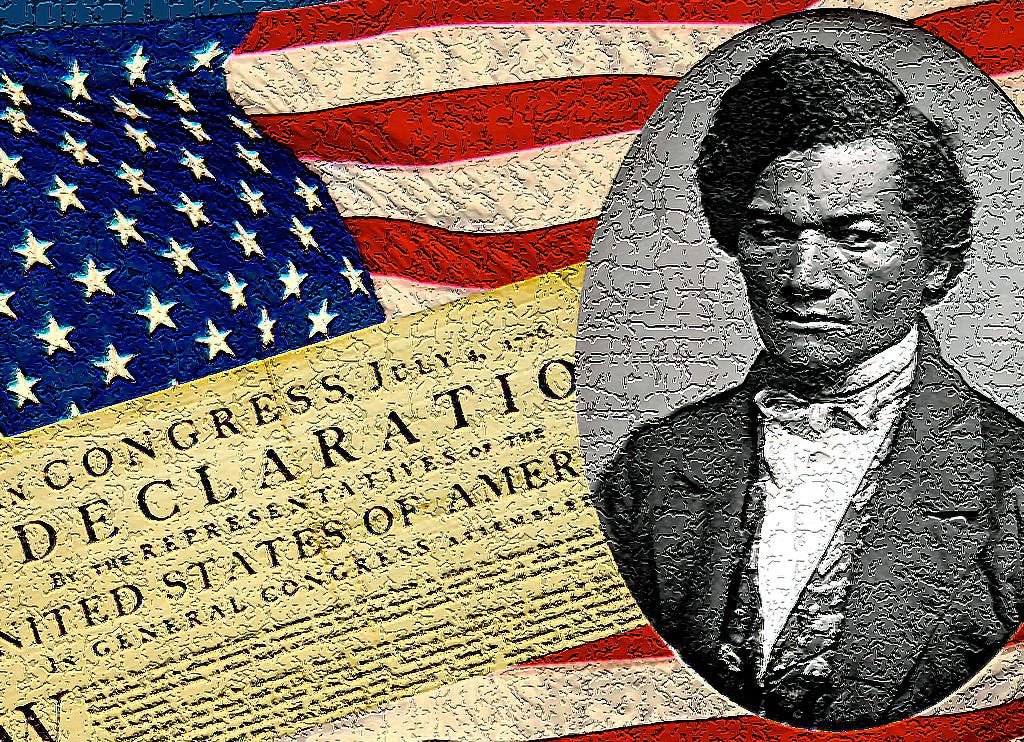'Morning Edition' Listeners Weigh In on Their Favorite Passages from the Declaration of Independence
As the Fourth of July approaches, a sense of patriotism and reflection on American history fills the air. 'Morning Edition,' NPR’s beloved morning news program, recently invited listeners to share their favorite passages from the Declaration of Independence. This document, crafted in 1776, remains a powerful symbol of liberty and democracy. The responses reveal a deep connection to the principles that shaped the United States and continue to resonate with Americans today.

The Power of the Declaration
The Declaration of Independence, authored primarily by Thomas Jefferson, is not just a historical artifact but a living testament to the ideals of freedom and equality. Its preamble, in particular, has inspired countless individuals and movements. Here are some of the favorite passages shared by 'Morning Edition' listeners and the reasons they hold such significance.
"We hold these truths to be self-evident, that all men are created equal..."
This iconic opening line of the Declaration's second paragraph was a popular choice among listeners. Its assertion of inherent equality is a cornerstone of American values. For many, these words are a reminder of the country's ongoing journey toward a more inclusive and just society.
Laura from Ohio shared, "Every time I read 'all men are created equal,' I'm reminded of the progress we've made and the work we still need to do to ensure true equality for all."
"...that they are endowed by their Creator with certain unalienable Rights, that among these are Life, Liberty and the pursuit of Happiness."
These words emphasize the inherent rights that belong to every individual. The idea that certain rights are unalienable, or cannot be taken away, underpins the American legal and moral framework. This passage resonates with those who value individual freedom and personal autonomy.
Mark from California said, "The pursuit of happiness part always gets to me. It’s a reminder that happiness is a fundamental right, not a luxury. It gives me hope and motivation."
"...Governments are instituted among Men, deriving their just powers from the consent of the governed..."
This phrase highlights the principle of democratic governance. The idea that government power comes from the people's consent is foundational to American democracy. It underscores the importance of civic engagement and participation in the political process.
Emily from New York commented, "This passage is a powerful reminder that our government exists to serve us. It's our duty to stay informed and involved."
"But when a long train of abuses and usurpations, pursuing invariably the same Object evinces a design to reduce them under absolute Despotism, it is their right, it is their duty, to throw off such Government..."
Listeners appreciated this passage for its bold assertion of the right to resist tyranny. It speaks to the American spirit of independence and the willingness to stand against oppression.
John from Texas stated, "This part of the Declaration always reminds me that we have the power to demand better from our leaders and that we shouldn't settle for less."
Historical Context and Contemporary Relevance
The Declaration of Independence was a revolutionary document in its time. It marked the American colonies' break from British rule and articulated a vision of a society based on equality, rights, and self-governance. Understanding the historical context of the Declaration helps us appreciate its significance.
Dr. Sarah Collins, a historian at Harvard University, explained, "The Declaration was radical because it challenged the existing order. It asserted that legitimate government must be based on the will of the people and respect for individual rights."
Today, the Declaration continues to inspire discussions about democracy, rights, and justice. Its principles are echoed in various movements advocating for civil rights, gender equality, and social justice. The document's enduring relevance is a testament to its powerful and visionary ideas.
Personal Reflections and Broader Impact
Many listeners shared personal reflections on how the Declaration's passages have influenced their lives and beliefs. These individual stories highlight the document's broad impact on American identity and values.
Maria from Florida recounted, "Growing up, my parents always emphasized the importance of our freedoms. The Declaration's words about life, liberty, and happiness have shaped my understanding of what it means to be an American."
For others, the Declaration serves as a call to action. Alex from Illinois shared, "Whenever I read the Declaration, I feel a renewed sense of responsibility to fight for justice and equality. It reminds me that these are not just words but ideals we must strive to achieve."
Educational Significance
The Declaration of Independence is also a crucial educational tool. Teachers across the country use it to introduce students to foundational concepts of American government and history. Engaging with the text helps students develop critical thinking skills and a deeper appreciation for democratic principles.
Mrs. Thompson, a high school teacher in Massachusetts, said, "I love teaching the Declaration because it sparks such meaningful discussions. Students begin to see the connections between historical events and contemporary issues."
Celebrating the Declaration on Independence Day
As Americans celebrate Independence Day, the Declaration of Independence takes center stage in festivities. Parades, fireworks, and public readings of the Declaration are common ways to honor the nation's founding document. These celebrations not only commemorate the past but also reaffirm the nation's commitment to the principles enshrined in the Declaration.
Conclusion: A Living Document
The responses from 'Morning Edition' listeners underscore the enduring power of the Declaration of Independence. Its words continue to inspire and challenge Americans to live up to the ideals of equality, rights, and democratic governance. As the nation reflects on its history this Fourth of July, the Declaration remains a vital touchstone, reminding us of the principles that define the United States.
In the words of Abraham Lincoln, "The Declaration of Independence... is a rebuke and a stumbling-block to tyranny and oppression." This sentiment captures the spirit of the Declaration and its lasting significance in American life.


You must be logged in to post a comment.